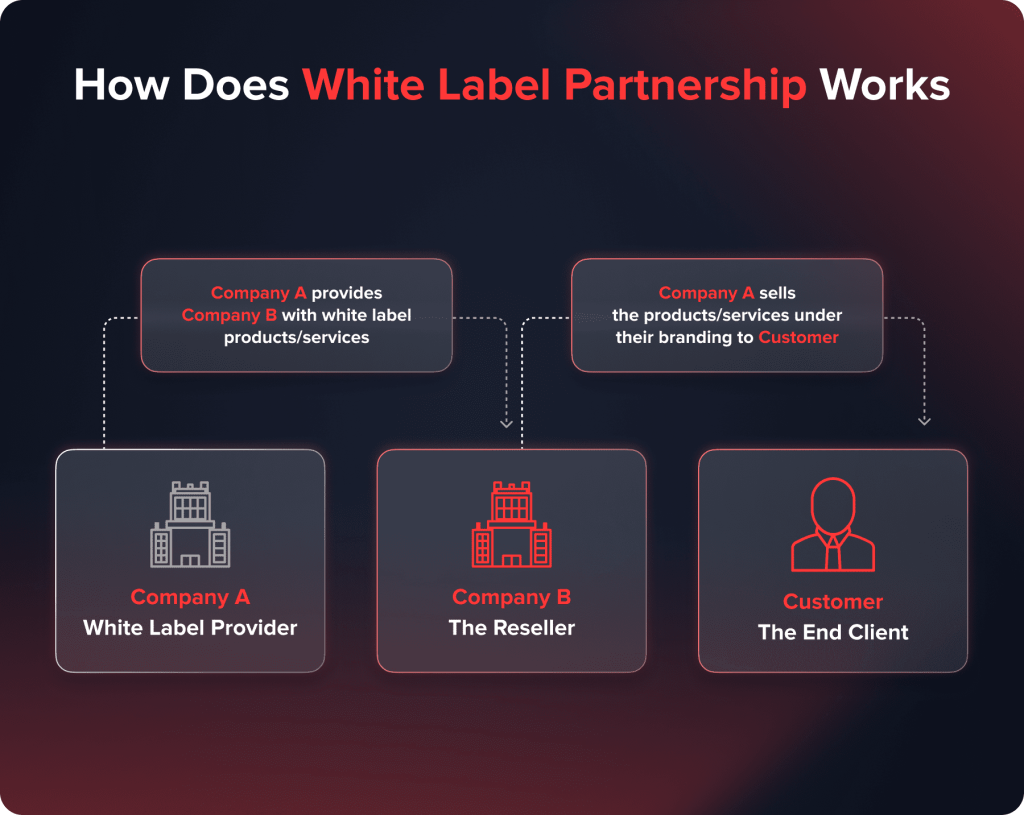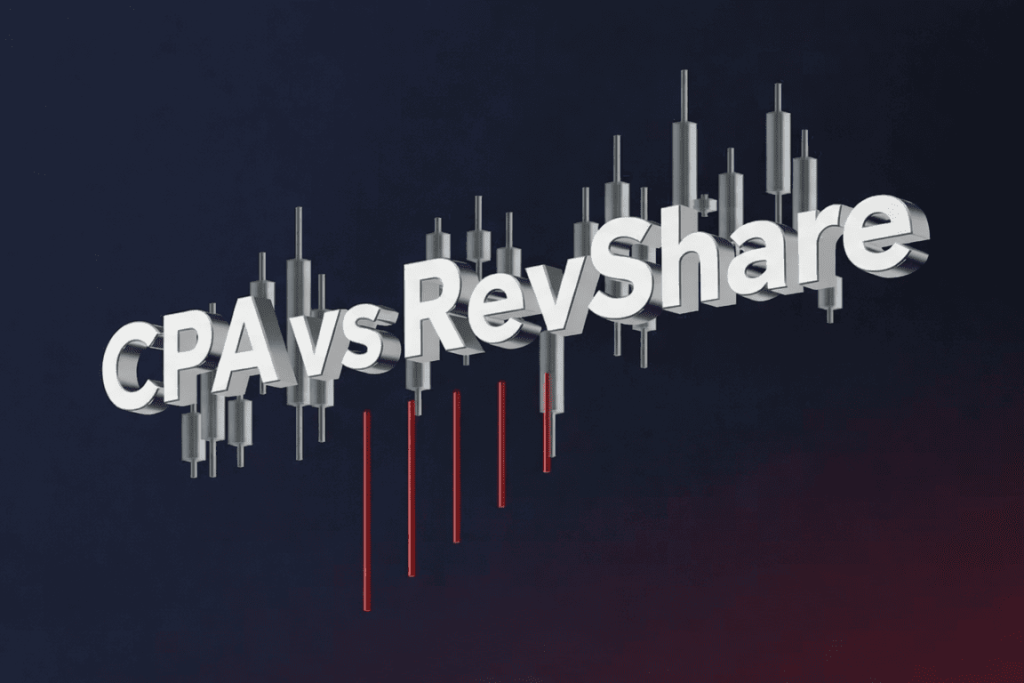
วิธีเริ่มต้นธุรกิจนายหน้า: คู่มือฉบับสมบูรณ์
เนื้อหา
ภาพรวมของรูปแบบธุรกิจนายหน้าซื้อขายหลักทรัพย์
ธุรกิจนายหน้าซื้อขายหลักทรัพย์เชื่อมโยงผู้ซื้อและผู้ขายเข้าด้วยกัน และดำเนินธุรกรรมโดยคิดค่าธรรมเนียมหรือค่าคอมมิชชั่น ในฐานะนายหน้า คุณจะทำหน้าที่เป็นคนกลาง คอยช่วยเหลือลูกค้าในตลาดที่ยากลำบาก ให้คำปรึกษาและเข้าถึงข้อมูลที่พวกเขาไม่สามารถค้นหาได้ด้วยตนเอง ธุรกิจนายหน้าซื้อขายหลักทรัพย์ที่ดีต้องอาศัยความไว้วางใจ ลูกค้าต้องเชื่อว่าคุณกำลังทำสิ่งที่ดีที่สุดสำหรับพวกเขา
รูปแบบธุรกิจนายหน้าซื้อขายหลักทรัพย์มีความยืดหยุ่นสูง คุณสามารถทำงานร่วมกับอุตสาหกรรมใดก็ได้ ไม่ว่าจะเป็นอสังหาริมทรัพย์ ประกันภัย หุ้น สินค้าโภคภัณฑ์ ขนส่งสินค้า หรือธุรกิจเฉพาะทาง แต่ละอุตสาหกรรมมีข้อกำหนดเฉพาะของตนเอง แต่รูปแบบธุรกิจก็เหมือนกัน นั่นคือ คุณจับคู่ผู้คนเข้าด้วยกันและช่วยให้พวกเขาบรรลุข้อตกลงที่ประสบความสำเร็จ
ประเภทของธุรกิจนายหน้า
อุตสาหกรรมนายหน้าซื้อขายหลักทรัพย์เป็นตลาดที่มีหลายแง่มุม โดยมีบริษัทต้นแบบจำนวนมากที่ตอบสนองความต้องการและความปรารถนาของนักลงทุนที่แตกต่างกัน
- โบรกเกอร์บริการครบวงจร: เหล่านี้คือยักษ์ใหญ่ในอุตสาหกรรมแบบดั้งเดิม ที่ให้บริการทางการเงินครบวงจร ตั้งแต่คำแนะนำการลงทุนที่ปรับแต่งได้ การบริหารพอร์ตโฟลิโอ และการวิเคราะห์ตลาดเชิงลึก พวกเขามุ่งเน้นไปที่บุคคลที่มีสินทรัพย์สุทธิสูงและนักลงทุนสถาบัน โดยใช้ประโยชน์จากความเชี่ยวชาญอันกว้างขวางและการเข้าถึงทั่วโลก
- โบรกเกอร์ส่วนลด: อย่างไรก็ตาม โบรกเกอร์แบบลดราคาเน้นความสะดวกสบายและความสามารถในการซื้อ และมอบอินเทอร์เฟซที่ใช้งานง่ายกว่าและแพลตฟอร์มการซื้อขายที่มีประสิทธิภาพสูงให้กับนักลงทุนที่ลงทุนด้วยตนเอง บริษัทรุ่นใหม่เหล่านี้มักดึงดูดกลุ่มบุคคลที่กลัวเทคโนโลยีและต้องการควบคุมตัวเลือกการลงทุนของตนเองได้มากขึ้น
- โบรกเกอร์เฉพาะทาง: การถือกำเนิดของสินทรัพย์เฉพาะทาง เช่น ฟอเร็กซ์และคริปโทเคอร์เรนซี ก่อให้เกิดธุรกิจนายหน้าซื้อขายหลักทรัพย์เฉพาะทางที่ให้บริการที่ปรับให้เหมาะกับความต้องการของตลาดนั้นๆ นายหน้าซื้อขายหลักทรัพย์เหล่านี้มอบเครื่องมือเฉพาะทาง ความรู้ และการซื้อขายด้วยเลเวอเรจสูงให้แก่เทรดเดอร์ เพื่อบริหารจัดการความซับซ้อนของตลาดเฉพาะของตน
ภูมิทัศน์ด้านกฎระเบียบสำหรับนายหน้าซื้อขายหลักทรัพย์
ธุรกิจนายหน้าซื้อขายหลักทรัพย์อยู่ภายใต้การกำกับดูแลที่เข้มงวด และมีสถาบันหลายแห่งที่กำกับดูแลความซื่อสัตย์สุจริตของอุตสาหกรรม รวมถึงการคุ้มครองผู้บริโภค ความรู้และการปฏิบัติตามกฎระเบียบเหล่านี้ถือเป็นข้อกำหนดเบื้องต้นสำหรับธุรกิจนายหน้าซื้อขายหลักทรัพย์ทุกประเภท
ในสหรัฐอเมริกา สถาบันกำกับดูแลที่สำคัญที่สุด ได้แก่ สำนักงานคณะกรรมการกำกับหลักทรัพย์และตลาดหลักทรัพย์ (SEC) และหน่วยงานกำกับดูแลอุตสาหกรรมการเงิน (FINRA) คณะกรรมการกำกับการซื้อขายสินค้าโภคภัณฑ์ล่วงหน้า (CFTC) เป็นอีกหนึ่งหน่วยงานกำกับดูแลที่สำคัญในตลาดอนุพันธ์ ขณะที่สหราชอาณาจักรมีหน่วยงานกำกับดูแลทางการเงิน (FCA)
นายหน้าซื้อขายหลักทรัพย์ต้องซื้อใบอนุญาต การลงทะเบียน และสมาชิกภาพที่จำเป็นสำหรับการดำเนินงานอย่างถูกกฎหมายในรัฐของตน นายหน้าซื้อขายหลักทรัพย์ต้องสามารถปฏิบัติตามข้อกำหนดการรายงานที่เข้มงวด รักษากระบวนการปฏิบัติตามกฎระเบียบที่เหมาะสม และใส่ใจกับการแจ้งเตือนด้านกฎระเบียบที่เปลี่ยนแปลงอยู่เสมอ เพื่อไม่ให้เสี่ยงต่อการสูญเสียค่าปรับและชื่อเสียงที่อาจเกิดขึ้น
วิธีเริ่มต้นธุรกิจนายหน้า
สร้างแผนธุรกิจนายหน้าซื้อขายหลักทรัพย์ที่น่าสนใจ
ดำเนินการวิจัยตลาด
ก่อนที่จะเริ่มธุรกิจนายหน้าซื้อขายหลักทรัพย์ คุณจำเป็นต้องทำการวิจัยตลาดอย่างละเอียดเพื่อทำความเข้าใจสภาพแวดล้อมทางธุรกิจของอุตสาหกรรม ค้นหากลุ่มเป้าหมายของตลาด และกำหนดข้อเสนอที่มีคุณค่าของคุณ
เริ่มต้นด้วยการพิจารณาแนวโน้มตลาดปัจจุบัน การแข่งขัน และความต้องการของนักลงทุนที่เปลี่ยนแปลงไป สร้างจุดอ่อนและความต้องการที่ยังไม่ได้รับการตอบสนองที่มีประสิทธิภาพสูงสุดที่ธุรกิจนายหน้าซื้อขายหลักทรัพย์ของคุณสามารถตอบสนองได้ ซึ่งอาจอยู่ในรูปแบบของการเข้าสู่ตลาดเฉพาะกลุ่ม เช่น ตลาดคริปโทเคอร์เรนซี หรือการลงทุนที่รับผิดชอบต่อสังคม ซึ่งคุณสามารถสร้างช่องว่างระหว่างตลาดอื่นๆ ได้
พัฒนาโมเดลธุรกิจของคุณ
การเลือกรูปแบบธุรกิจของคุณเป็นตัวกำหนดทุกสิ่ง ตั้งแต่ต้นทุนเริ่มต้นไปจนถึงศักยภาพในการสร้างรายได้ โซลูชันแบบ White-label ได้กลายเป็นเส้นทางที่เร็วที่สุดสู่ตลาด โดยเปิดตัวได้ภายใน 14 วัน ด้วยราคาประมาณ 50,000 ดอลลาร์สหรัฐ วิธีนี้ช่วยให้คุณเข้าถึงเทคโนโลยีการซื้อขายที่พิสูจน์แล้วได้ทันที ในขณะที่คุณมุ่งเน้นไปที่การหาลูกค้า ผู้ให้บริการชั้นนำอย่าง Quadcode จะช่วยจัดการงานเบื้องหลังที่ซับซ้อน ซึ่งรวมถึงระบบรวบรวมสภาพคล่องและระบบบริหารความเสี่ยง
สำหรับผู้ที่ต้องการควบคุมทุกอย่าง การสร้างแพลตฟอร์มแบบกำหนดเองยังคงเป็นทางเลือกหนึ่ง แม้ว่าจะต้องใช้เงินมากกว่า 150,000 ดอลลาร์สหรัฐ และเวลาในการพัฒนาอย่างน้อยหกเดือน แนวทางแบบผสมผสานนี้ เริ่มต้นด้วยโซลูชันแบบไวท์เลเบล และพัฒนาเทคโนโลยีที่เป็นกรรมสิทธิ์อย่างค่อยเป็นค่อยไป ช่วยให้โบรกเกอร์หลายรายเปลี่ยนผ่านได้อย่างราบรื่น พร้อมกับสร้างรายได้ระหว่างการพัฒนา

การวางแผนปฏิบัติการ
โบรกเกอร์ที่ประสบความสำเร็จต้องมีรูปแบบการดำเนินงานที่ชัดเจนเพื่อมอบประสบการณ์ที่ราบรื่นให้กับลูกค้า พัฒนาผังองค์กรโดยกำหนดตำแหน่งและหน้าที่หลักภายในบริษัท ตั้งแต่ผู้บริหารระดับสูงไปจนถึงบุคลากรฝ่ายบริการลูกค้า
ลงทุนในการพัฒนาแพลตฟอร์มเทคโนโลยีที่แข็งแกร่ง ซึ่งรวมถึงแพลตฟอร์มการซื้อขายที่ใช้งานง่าย เครื่องมือการซื้อขายขั้นสูง และกระบวนการชำระเงินที่ปลอดภัย มั่นใจได้ว่าแพลตฟอร์มของคุณจะสามารถปรับขนาดได้เพื่อรองรับจำนวนผู้ใช้และการซื้อขายที่เพิ่มขึ้นตามการเติบโตของธุรกิจนายหน้าซื้อขายหลักทรัพย์ของคุณ
กลยุทธ์การตลาดและการสร้างแบรนด์
ด้วยตลาดนายหน้าซื้อขายหลักทรัพย์ที่มีการแข่งขันสูง กลยุทธ์การตลาดที่มีประสิทธิภาพและชื่อเสียงของแบรนด์จึงเป็นปัจจัยสำคัญในการชนะใจและรักษาลูกค้าไว้ สร้างสถานะแบรนด์ที่แข็งแกร่งเพื่อดึงดูดลูกค้าเป้าหมายและสร้างความแตกต่างจากคู่แข่ง
สร้างอัตลักษณ์ทางภาพที่สอดคล้องกัน เช่น โลโก้ จานสี และโทนสีที่เป็นเอกลักษณ์ ใช้สื่อออนไลน์ เช่น เว็บไซต์ที่แข็งแกร่ง โซเชียลเน็ตเวิร์ก และการตลาดเนื้อหา เพื่อสร้างตัวตนบนเว็บและสื่อสารกับลูกค้าเป้าหมาย
ทำความเข้าใจสภาพแวดล้อมด้านกฎระเบียบ
ทำความเข้าใจกฎระเบียบทางการเงิน
ค้นพบหน่วยงานกำกับดูแลที่เกี่ยวข้อง รวมถึงภาระผูกพันในการออกใบอนุญาต การจดทะเบียน และการปฏิบัติตามกฎระเบียบอย่างต่อเนื่องของหน่วยงานที่เกี่ยวข้อง ในสหรัฐอเมริกา สำนักงานคณะกรรมการกำกับหลักทรัพย์และตลาดหลักทรัพย์ (ก.ล.ต.) และ FINRA กำกับดูแลตลาดหลักทรัพย์ และ CFTC กำกับดูแลตลาดอนุพันธ์และตลาดซื้อขายล่วงหน้า ทิศทางของธุรกิจนายหน้าซื้อขายหลักทรัพย์ของคุณอาจเปลี่ยนแปลงไป คุณอาจอยู่ภายใต้การกำกับดูแลเพิ่มเติมจากหน่วยงานอื่นๆ เช่น สมาคมซื้อขายล่วงหน้าแห่งชาติ (NFA) หรือสถาบันการเงินระดับรัฐ
รับใบอนุญาตและการลงทะเบียนตามความจำเป็น เช่น ใบอนุญาตนายหน้าซื้อขายหลักทรัพย์ ใบอนุญาตที่ปรึกษาการลงทุน และใบอนุญาตสมาชิกองค์กรกำกับดูแลตนเอง เช่น FINRA จัดทำบันทึกและรายงานที่ถูกต้องเป็นระยะๆ เพื่อให้มั่นใจว่าคุณยังคงสถานะที่ดีกับหน่วยงานกำกับดูแล
You may also like

ให้แน่ใจว่ามีการปฏิบัติตามอย่างถูกต้อง
การสร้างวัฒนธรรมการปฏิบัติตามกฎระเบียบที่เข้มงวดภายในบริษัทนายหน้าของคุณเป็นสิ่งสำคัญอย่างยิ่งต่อการลดความเสี่ยงทางกฎหมายและชื่อเสียง ควรมีขั้นตอนการรู้จักลูกค้า (KYC) และป้องกันการฟอกเงิน (AML) ที่เข้มงวด เพื่อยืนยันตัวตนของลูกค้าและเฝ้าระวังกิจกรรมที่น่าสงสัย
จัดทำขั้นตอนด้านความปลอดภัยและความเป็นส่วนตัวของข้อมูลที่เข้มงวดเพื่อปกป้องข้อมูลส่วนบุคคลของลูกค้า ซึ่งรวมถึงการเข้ารหัสข้อมูล การควบคุมการเข้าถึง และขั้นตอนการตอบสนองต่อเหตุการณ์ต่างๆ หมั่นตรวจสอบขั้นตอนการปฏิบัติตามกฎระเบียบ ดำเนินการตรวจสอบภายใน และฝึกอบรมพนักงานอย่างสม่ำเสมอเพื่อสร้างวัฒนธรรมการปฏิบัติตามกฎระเบียบ แต่งตั้งเจ้าหน้าที่กำกับดูแลการปฏิบัติตามกฎระเบียบประจำที่จะดูแลการจัดตั้งและการบำรุงรักษาระบบการปฏิบัติตามกฎระเบียบของคุณ
กำหนดโครงสร้างพื้นฐานด้านเทคโนโลยีที่สามารถแข่งขันได้
เลือกแพลตฟอร์มการซื้อขายที่เหมาะสม
แพลตฟอร์มเทคโนโลยีของโบรกเกอร์ของคุณเปรียบเสมือนหน่วยพื้นฐานที่ทำลายหรือสร้างประสบการณ์ให้กับลูกค้า เลือกและประเมินแพลตฟอร์มการซื้อขายอย่างชาญฉลาดที่สอดคล้องกับรูปแบบธุรกิจ บริการที่นำเสนอ และฐานลูกค้าของคุณ
พิจารณาอินเทอร์เฟซผู้ใช้ของแพลตฟอร์ม เวลาดำเนินการ ความสามารถในการกำหนดเส้นทางคำสั่งซื้อ และการเชื่อมต่อระหว่างผู้ให้บริการข้อมูลบุคคลที่สามและสถานที่ดำเนินการ เพื่อให้แน่ใจว่าแพลตฟอร์มมอบประสบการณ์ที่ราบรื่นและราบรื่นสำหรับลูกค้าของคุณ ไม่ว่าลูกค้าของคุณจะมีความเชี่ยวชาญทางเทคนิคหรือกลยุทธ์การลงทุนแบบใด
นอกจากนี้ ควรพิจารณาถึงความสามารถในการปรับขนาดของแพลตฟอร์ม เพื่อให้ธุรกิจนายหน้าซื้อขายหลักทรัพย์ของคุณสามารถจัดการปริมาณการซื้อขายและปริมาณการใช้งานของผู้ใช้ที่เพิ่มขึ้นได้เมื่อธุรกิจของคุณขยายตัว ให้ความสำคัญกับเสถียรภาพ ความน่าเชื่อถือ และมาตรการรักษาความปลอดภัยของแพลตฟอร์ม เพื่อสร้างความเชื่อมั่นให้กับลูกค้าและปกป้องเงินทุนของพวกเขา
รับรองความปลอดภัยทางไซเบอร์และการปกป้องข้อมูล
ความปลอดภัยทางไซเบอร์และการปกป้องข้อมูลเป็นข้อกังวลอันดับต้นๆ ของบริษัทนายหน้าในโลกออนไลน์ในปัจจุบัน ใช้เครื่องมือรักษาความปลอดภัยที่แข็งแกร่ง เช่น การเข้ารหัส การยืนยันตัวตนแบบหลายปัจจัย และการควบคุมการเข้าถึง เพื่อรักษาความปลอดภัยข้อมูลส่วนตัวของลูกค้าและป้องกันระบบของคุณจากการเข้าถึงโดยไม่ได้รับอนุญาต
จัดทำแผนการกู้คืนระบบและการตอบสนองต่อเหตุการณ์ฉุกเฉินที่ดี เพื่อให้กระบวนการทางธุรกิจมีความต่อเนื่องในกรณีที่ระบบล้มเหลวหรือเกิดการละเมิดความปลอดภัย ดำเนินการล่วงหน้าโดยการอัปเดตระบบควบคุมความปลอดภัยเป็นระยะๆ ก่อนเกิดภัยคุกคามที่อาจเกิดขึ้น เพื่อให้ผู้มีส่วนได้ส่วนเสียของคุณได้รับข้อมูลที่ถูกต้อง
ปฏิบัติตามกฎหมายคุ้มครองข้อมูลส่วนบุคคลที่เกี่ยวข้อง กฎระเบียบคุ้มครองข้อมูลทั่วไป (GDPR) และพระราชบัญญัติคุ้มครองความเป็นส่วนตัวของผู้บริโภคแห่งรัฐแคลิฟอร์เนีย (CCPA) โดยมีการจัดการและจัดเก็บข้อมูลที่มีประสิทธิภาพ แสดงความห่วงใยต่อความเป็นส่วนตัวของข้อมูลโดยการเผยแพร่นโยบายข้อมูลต่อสาธารณะและแจ้งให้ลูกค้าทราบอยู่เสมอ
ใช้ประโยชน์จากนวัตกรรม Fintech
ภาคธุรกิจนายหน้าซื้อขายหลักทรัพย์กำลังเผชิญกับคลื่นโซลูชันฟินเทคมากมาย ซึ่งสามารถยกระดับประสบการณ์และประสิทธิภาพการดำเนินงานของลูกค้า เรียนรู้ว่าเทคโนโลยีใหม่ๆ เช่น บล็อกเชน ปัญญาประดิษฐ์ และคลาวด์คอมพิวติ้ง จะช่วยให้ธุรกิจนายหน้าซื้อขายหลักทรัพย์ของคุณเติบโตและก้าวหน้าได้อย่างไร
ผสานรวมโซลูชันล้ำสมัยที่จะช่วยให้งานทั่วไปเป็นระบบอัตโนมัติ ให้คำแนะนำการลงทุนเฉพาะบุคคล และผสานรวมจุดข้อมูลภายนอกและศูนย์กลางทางการเงินได้อย่างราบรื่น อย่างไรก็ตาม โปรดตรวจสอบให้แน่ใจว่าการนำเทคโนโลยีเหล่านี้มาใช้งานสอดคล้องกับข้อกำหนดด้านกฎระเบียบของคุณ และไม่ทำให้ระบบการซื้อขายของคุณมีความปลอดภัยและความน่าเชื่อถือน้อยลง
ความสามารถในการปรับขนาดและความยืดหยุ่น
เมื่อธุรกิจของคุณขยายตัวในฐานะนายหน้าซื้อขายหลักทรัพย์ สิ่งสำคัญคือต้องวางโครงสร้างพื้นฐานด้านเทคโนโลยีที่มีความยืดหยุ่นและปรับขนาดได้ ตรวจสอบให้แน่ใจว่าแพลตฟอร์มการซื้อขาย ระบบจัดการคำสั่งซื้อขาย และระบบจัดเก็บข้อมูลของคุณสามารถรองรับปริมาณการซื้อขาย ปริมาณการใช้งาน และข้อมูลตลาดที่เพิ่มขึ้น โดยไม่กระทบต่อประสิทธิภาพหรือปัญหาขัดข้อง
มีเทคโนโลยีที่ยืดหยุ่นและเป็นแบบโมดูลาร์ ซึ่งคุณสามารถเพิ่มฟังก์ชันการทำงานใหม่ เปลี่ยนชิ้นส่วน และปรับให้เข้ากับสถานการณ์ตลาดที่ผันผวนและข้อกำหนดด้านกฎระเบียบต่างๆ ได้ ความสามารถในการปรับตัวนี้จะทำให้ธุรกิจนายหน้าของคุณเติบโต ทันเวลา และตอบสนองต่อความต้องการที่เปลี่ยนแปลงไปของลูกค้า
เคล็ดลับในการสร้างธุรกิจนายหน้าที่ประสบความสำเร็จ
ตัดสินใจเลือกทางเลือกที่ดีที่สุดของคุณ
สำหรับผู้ประกอบการที่มีประสบการณ์ทางเทคนิคจำกัด โซลูชันแบบ White-label มอบข้อได้เปรียบที่น่าสนใจ ผู้ให้บริการสามารถจัดการการปฏิบัติตามกฎระเบียบ การบำรุงรักษาแพลตฟอร์ม และการจัดหาสภาพคล่อง ช่วยให้คุณสามารถมุ่งเน้นไปที่การสร้างความสัมพันธ์กับลูกค้าได้อย่างเต็มที่ ข้อดีคือมีตัวเลือกการปรับแต่งที่ลดลงและค่าธรรมเนียมใบอนุญาตแบบต่อเนื่อง (โดยทั่วไปอยู่ที่ 10-20% ของรายได้)
การสร้างแพลตฟอร์มของคุณนั้นสมเหตุสมผลเมื่อคุณมีความเชี่ยวชาญทางเทคนิคเฉพาะทางหรือมีเป้าหมายเจาะกลุ่มตลาดเฉพาะ แม้จะต้องใช้เงินลงทุนเริ่มต้นที่สูงกว่า แต่แนวทางนี้มอบการควบคุมประสบการณ์ของลูกค้าและโครงสร้างผลกำไรได้อย่างสมบูรณ์ โบรกเกอร์ที่ประสบความสำเร็จหลายรายเริ่มต้นด้วยโซลูชันแบบ White-label ควบคู่ไปกับการพัฒนาเทคโนโลยีที่เป็นกรรมสิทธิ์สำหรับการย้ายข้อมูลในอนาคต
สร้างทีมที่มีความสามารถ
ความสำเร็จของคุณในฐานะธุรกิจนายหน้าขึ้นอยู่กับความแข็งแกร่งของทีมงาน จ้างทีมงานมืออาชีพที่มีประสบการณ์ มีความเชี่ยวชาญ และมีเครือข่ายในอุตสาหกรรมที่จะขับเคลื่อนธุรกิจของคุณ
ในระดับผู้บริหาร มองหาบุคคลที่มีประวัติการทำงานที่แข็งแกร่งในอุตสาหกรรมนายหน้าซื้อขายหลักทรัพย์ อุตสาหกรรมบริการทางการเงิน หรืออุตสาหกรรมที่เกี่ยวข้อง ผู้บริหารเหล่านี้จะมีหน้าที่กำหนดทิศทางโดยรวม ดำเนินธุรกิจ และสร้างวัฒนธรรมแห่งนวัตกรรมและการให้ความสำคัญกับลูกค้า
จ้างนักวิเคราะห์ตลาดและผู้เชี่ยวชาญด้านการวิจัยที่จะให้การวิเคราะห์เชิงลึก ข้อมูลตลาด และคำแนะนำด้านการลงทุนแก่ลูกค้าของคุณ ผู้เชี่ยวชาญด้านไอที เช่น นักพัฒนาซอฟต์แวร์และผู้เชี่ยวชาญด้านความปลอดภัย จะทำให้แพลตฟอร์มการซื้อขายและโครงสร้างพื้นฐานที่เกี่ยวข้องของคุณแข็งแกร่ง ปลอดภัย และปรับขนาดได้
การรับและรักษาลูกค้า
จำเป็นต้องออกแบบกระบวนการออนบอร์ดลูกค้าที่ราบรื่นเพื่อสร้างฐานลูกค้าที่ภักดีและสร้างชื่อเสียงให้กับโบรกเกอร์ของคุณ ปรับปรุงขั้นตอนการเปิดบัญชีให้มีประสิทธิภาพยิ่งขึ้น โดยใช้ประโยชน์จากเทคโนโลยีและระบบอัตโนมัติเพื่อลดความยุ่งยากและเร่งเวลาในการซื้อขายให้กับลูกค้าของคุณ
มอบความใส่ใจเป็นรายบุคคลและวางแผนการลงทุนเฉพาะบุคคลให้กับลูกค้าแต่ละราย โดยพิจารณาจากเป้าหมายการลงทุน ความสามารถในการรับความเสี่ยง และเป้าหมายการลงทุนของลูกค้าแต่ละราย ตรวจสอบและอัปเดตพอร์ตการลงทุนของลูกค้าเป็นระยะๆ พร้อมพูดคุยข่าวสารตลาดและข้อเสนอแนะเกี่ยวกับการเปลี่ยนแปลงต่างๆ อย่างสม่ำเสมอ เพื่อให้ลูกค้าได้รับความไว้วางใจและมีส่วนร่วมมากยิ่งขึ้น
มีระบบสนับสนุนลูกค้าที่ครบครัน อาทิ ระบบการสื่อสารหลายช่องทาง ฐานความรู้ที่ครอบคลุม และการสนับสนุนอย่างต่อเนื่อง เพื่อตอบสนองต่อปัญหาและข้อสงสัยของลูกค้าได้อย่างทันท่วงที คุณสามารถสร้างความสัมพันธ์ระยะยาวและได้รับการแนะนำจากลูกค้าผ่านบริการที่ยอดเยี่ยม ซึ่งจะเป็นแรงกระตุ้นการเติบโตอย่างมากสำหรับธุรกิจนายหน้าซื้อขายหลักทรัพย์ของคุณ
จัดการความเสี่ยงและรับรองการปฏิบัติตาม
เนื่องจากคุณประกอบธุรกิจนายหน้าซื้อขายหลักทรัพย์ คุณจึงต้องตระหนักถึงความเสี่ยงต่างๆ ในตลาดการเงินเป็นอย่างดี และมีระบบบริหารความเสี่ยงที่เหมาะสม มีขั้นตอนการประเมินและบรรเทาความเสี่ยงที่เข้มงวด เพื่อปกป้องเงินทุนของลูกค้าและความมั่นคงทางการเงินของบริษัท
ปฏิบัติตามการควบคุมภายใน กระบวนการปฏิบัติตามกฎระเบียบ และขั้นตอนการตรวจสอบที่เข้มงวด เพื่อยืนยันว่าการดำเนินงานของคุณเป็นไปตามมาตรฐานการกำกับดูแลและแนวปฏิบัติที่ดีที่สุดในอุตสาหกรรม จ้างเจ้าหน้าที่ปฏิบัติตามกฎระเบียบประจำเพื่อดำเนินการและตรวจสอบโปรแกรมการปฏิบัติตามกฎระเบียบของคุณอย่างสม่ำเสมอ
หมั่นติดตามกฎระเบียบที่เปลี่ยนแปลง แนวโน้มตลาด และความเสี่ยงใหม่ๆ และปรับเปลี่ยนแนวทางปฏิบัติให้เหมาะสม การบริหารความเสี่ยงอย่างแข็งขันและวัฒนธรรมการปฏิบัติตามกฎระเบียบที่ดีไม่เพียงแต่จะช่วยปกป้องชื่อเสียงของนายหน้าซื้อขายหลักทรัพย์ของคุณเท่านั้น แต่ยังสร้างความมั่นใจให้กับลูกค้า และทำให้บริษัทของคุณเป็นผู้เล่นในอุตสาหกรรมที่น่าเชื่อถือและมีความรับผิดชอบ
You may also like

ขับเคลื่อนการเติบโตและผลกำไรทางธุรกิจ
เพื่อให้ธุรกิจนายหน้าซื้อขายหลักทรัพย์ของคุณมีกำไรและประสบความสำเร็จอย่างยั่งยืน คุณต้องมุ่งมั่นแสวงหาโอกาสในการเติบโตและกระจายความเสี่ยง คุณควรแสวงหาวิธีขยายฐานผลิตภัณฑ์และบริการของคุณ เช่น การนำเสนอประเภทสินทรัพย์ใหม่ๆ ปรัชญาการลงทุน หรือบริการสนับสนุนต่างๆ เช่น การวิจัยและการศึกษา
ร่วมมือกับสถาบันการธนาคาร บริษัทฟินเทค หรือสมาคมการค้าอื่นๆ เพื่อใช้ประโยชน์จากจุดแข็งของกันและกัน เข้าถึงตลาดใหม่ และผลักดันลูกค้าปัจจุบันของคุณให้ลึกซึ้งยิ่งขึ้น
ดำเนินงานเพื่อพัฒนาประสิทธิภาพการดำเนินงานของคุณทุกวัน สร้างแรงบันดาลใจให้กับวิธีการประหยัดต้นทุน และยกระดับโซลูชันที่ล้ำสมัยด้วยเทคโนโลยี เพื่อมุ่งสู่ประสิทธิภาพและผลกำไรสูงสุด เตรียมพร้อมวัดผลประสิทธิภาพหลัก (KPI) ที่สำคัญที่สุดของคุณ เช่น อัตราการได้มาซึ่งลูกค้า ปริมาณธุรกรรม และรายได้ต่อลูกค้า เพื่อประกอบการตัดสินใจและรักษาการเติบโตของธุรกิจนายหน้า
บทสรุป
การเข้าสู่ธุรกิจนายหน้าซื้อขายหลักทรัพย์ในสภาพแวดล้อมทางการเงินที่มีการเติบโตสูงในปัจจุบัน จำเป็นต้องมีวิสัยทัศน์ที่ชัดเจน ผสมผสานความเฉียบแหลมในอุตสาหกรรม ความสามารถทางเทคโนโลยี ความซื่อสัตย์สุจริตด้านกฎระเบียบ และการให้ความสำคัญกับลูกค้าอย่างไม่สั่นคลอน ความเชี่ยวชาญในรูปแบบต่างๆ ของบริษัทนายหน้าซื้อขายหลักทรัพย์ การอยู่รอดในสภาพแวดล้อมด้านกฎระเบียบที่มีหลายชั้น และการสร้างแพลตฟอร์มที่แข็งแกร่งสำหรับเทคโนโลยี จะช่วยให้คุณวางตำแหน่งบริษัทของคุณให้อยู่ในสถานะที่ดี มีกำไร และยั่งยืนในระยะยาว
FAQ
ธุรกิจนายหน้าได้รับรายได้หลักจากค่าคอมมิชชั่นการลงทุน ค่าธรรมเนียมการซื้อขาย และส่วนต่างราคาซื้อและขาย
โดยทั่วไปแล้ว หากต้องการเปิดบัญชีนายหน้า คุณจะต้องแสดงเอกสารระบุตัวตน การยืนยันที่อยู่ และเงินลงทุนหรือเงินฝากเริ่มต้น
ความเสี่ยงหลักที่เกี่ยวข้องกับการซื้อขายออนไลน์ ได้แก่ ความผันผวนของตลาด การโจมตีทางไซเบอร์ และการระงับแพลตฟอร์มหรือความล้มเหลวของระบบ
อัปเดต:
4 เมษายน 2568




